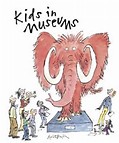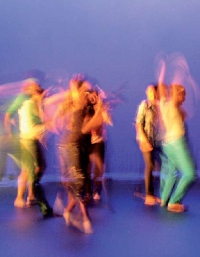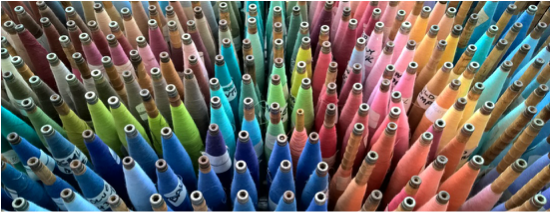 I'm delighted to be chairing Kids in Museums new workshop 'Welcoming Families with Autism' at the Science Museum on February 9th. It's a day packed with experts from museums and arts organisations who can share their experiences of welcoming families with children or young people on the autism spectrum. You can book for the event here or keep an eye on future workshops here It's a subject I've been interested in for many years and have blogged about previously, though my interest has ramped up several gears over the past 12 months thanks to my involvement with two local autism charities, and my work with Lancashire Museums who commissioned me to research the subject of museums and autism from the perspectives of museums and autistic visitors. You can read more about that on my separate, ongoing blog http://www.museumsandautism.tumblr.com/ which combines museum practice, feedback from families and visitors on the autistic spectrum, and expert reports and presentations on the subject.
0 Comments
23/10/2015 Free Downloadable resource - Children & Young People's Arts Participation in Practice: For Rural and Other AreasRead Now
Last winter I was asked to create a series of case studies and good practice guidance for arts related work with children and young people in rural areas. This was part of a bigger piece of work for Arts Connect as they began their journey to support the creation of a consortium for arts and cultural organisations across Shropshire.
Shropshire Arts Consortium was formally launched this week with much ground covered already in the past few months and a lively energy to carry on building opportunities for children and young people in the area moving forward. A website for their work is on its way and in the meantime you can follow them on the #ShropConsortium hashtag. Many people were interested in the case studies and research I carried out, and Arts Connect have kindly agreed to share it as widely as possible. The resource created from this research contains
Feel free to read or download the resource below... I'm really struck today by why artists / schools often feel a need to 'dumb down' what's possible - so many simple mosaics, hand prints, flowers, butterflies... there's nothing wrong with those, but it's as though there's an assumption that children aren't capable of getting wrapped up in ideas, thoughts, concepts, challenge, investigation, invention and processes. I know that they are, that they can handle more conceptual art than many adults, that ideas and possibility makes them buzz. So where is it that these limitations come from? Maybe it's the adults who are scared? Should we take a step back and learn from what the children can unlock for us? I'm just saying, let's not always fall back on the lowest common denominator.
You can read more comments and join in this conversation over on Facebook here...  For several years there has been debate about the potential for using the arts to help improve literacy and numeracy (and other subjects). For many arts organisations being able to find ways to achieve this has been a necessity to survive. For some this raises discomfort, those who feel it's not what the arts are for and can run the risk of people losing sight of other benefits that perhaps are more intrinsic to artistic practice. Personally I don't choose one side or the other of the argument, there are truths and benefits (and no doubt pitfalls) either way. Though I do know this - for children and young people who for whatever reason are not as developed as their peers in language and numeracy skills, the arts can present a more accessible way to unpick learning that some other formats. I've seen it happen first hand. I can't say for sure it's specific to the arts - I do think it's something about a creative approach generally and the opportunity to work in different environments and include kinaesthetic activity. All of which is common, but not exclusive, to arts activity. However - last year I was asked to work with the inspirational arts producer Elizabeth Lynch to evaluate Performing for Success. An arts based project building on the proven achievements of Playing for Success (which used sports to improve young people's numeracy and literacy skills). It was a unique programme in that it met Extended School agendas and relied on partnerships between extended school deliverers experienced in sport, and arts or cultural organisations. However there was no national model, each pilot area approached the structure in different ways, some more effectively and successfully than others. It was DCFS funded initiative but not via the 'usual' channels (such as Find Your Talent or Creative Partnerships) but through an independent education contractor, Rex Hall Associates. In the current climate who can say what will happen to these kinds of initiatives. However if you'd like to read our response to the programme you can download it *here* UPDATE: I have learned that Rex Hall sadly passed away on May 31st. My experience of working with him was brief but so inspiring to see first hand the difference one person can make. My thoughts and wishes go to all of those close to him. |
Details
...BlogI'm most interested in how the public, your public, whoever that may be, engages with culture and creativity.
And if it nurtures creativity and develops personal, social or professional skills I'm absolutely all ears. Categories
All
Archives
May 2023
|



 RSS Feed
RSS Feed
